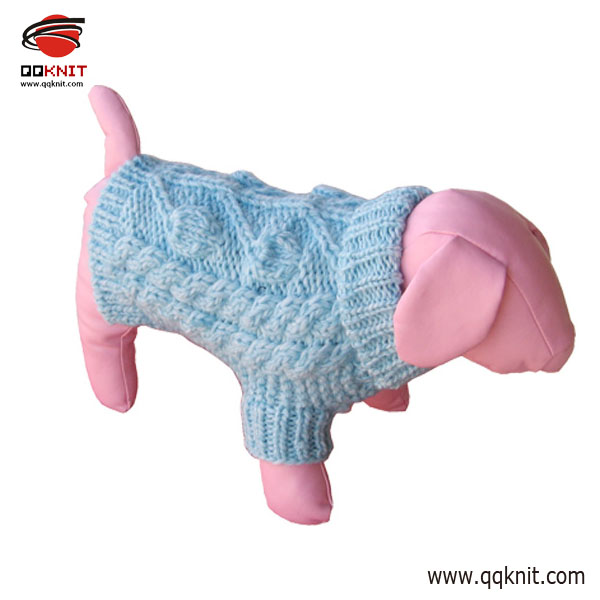The handmade pet sweater knitters of QQKNIT explored the book Intrinsic Motivation, gaining insights into fostering motivation, autonomy, competence, and connection in their hand knitting work and beyond. Here’s a summary of their key takeaways and reflections:
Three Basic Psychological Needs
Autonomy: People want control over their actions and choices. In pet sweater knitting, the ability to freely select materials, colors, and techniques based on personal preference enhances enjoyment and a sense of ownership over their work.
Competence: People are motivated by the desire to overcome challenges and improve. The handmade dog sweater knitters find satisfaction in refining their skills, problem-solving, and achieving precise, well-fitting pet sweaters through dedication and practice.
Connection: The need for belonging and relationships drives people to bond with others. Through group activities, the handmade pet jumper knitters strengthen friendships, share techniques, and experience community support.
Intrinsic Motivation vs. External Control
Intrinsic Motivation: Comes from internal interests, like love for pets, enthusiasm for hand knitting, or the fulfillment of completing a project. This type of motivation fuels the handmade dog jumper knitters to continue working, even through challenges, out of genuine passion.
External Control: Relies on rewards or recognition from others. If knitting is done primarily for praise, it may lack the self-sustaining satisfaction that comes from intrinsic motivation.
Benefits of Combining Autonomy and Competence
When handmade pet coat knitters feel both capable and in control, they experience a more rewarding and enjoyable process, leading to higher quality results, greater productivity, and boosted confidence.
Taking Ownership of Tedious Tasks
Some hand knitting steps, like needle pulling or measuring, can be repetitive. However, viewing these steps as part of a personal project helps the knitters stay engaged and diligent. This approach shows that even mundane tasks become manageable when approached autonomously.
How to Encourage Autonomy in Others
Respect Choices: Encourage others to express their preferences and needs in their work.
Provide Support: Offer guidance and share techniques to help others grow.
Foster a Positive Atmosphere: Organize learning sessions and group discussions to enhance interest and enthusiasm.
Achieving Personal Autonomy
Goal Setting: Defining specific goals, like creating a warm sweater for a pet, helps maintain focus.
Planning: Develop strategies, like choosing materials and techniques that align with goals.
Focus and Patience: Embrace the challenges and joys of the process, sustaining motivation over time.
Mindful Autonomy
Avoid Overstepping: Respect others’ autonomy without imposing views.
Stay Open-Minded: Embrace diverse ideas and learn from them.
Balance Internal and External Motivation: Appreciate the value of external feedback while staying true to intrinsic motivations.
Through studying Intrinsic Motivation, QQKNIT’s handmade dog coat knitters deepened their understanding of psychological needs and the nuances between intrinsic and external motivation. They’ve learned valuable strategies for enhancing autonomy and competence, which will help them enjoy the hand knitting process more fully while achieving a sense of personal fulfillment and joy. This knowledge empowers them to approach their work with greater self-direction and satisfaction, cultivating both individual growth and stronger community ties. From QQKNIT College (Best hand knit/ handmade products)
The following Products may interest you!
Post time: Nov-05-2024



